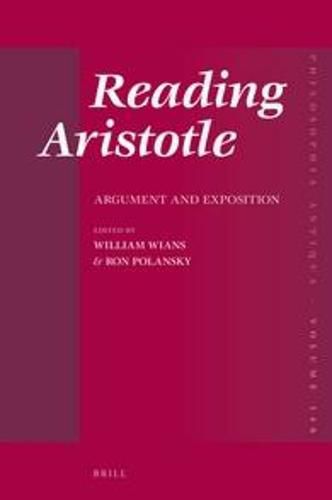Readings Newsletter
Become a Readings Member to make your shopping experience even easier.
Sign in or sign up for free!
You’re not far away from qualifying for FREE standard shipping within Australia
You’ve qualified for FREE standard shipping within Australia
The cart is loading…






Reading Aristotle: Argument and Exposition argues that Aristotle’s treatises must be approached as progressive unfoldings of a unified position that may extend over a single book, an entire treatise, or across several works. Contributors demonstrate that Aristotle relies on both explanatory and expository principles. Explanatory principles include familiar doctrines such as the four causes, actuality’s priority over potentiality and nature’s doing nothing in vain. Expository principles are at least as important. They pertain to proper sequence, pedagogical method, the role of reputable views and the opinions of predecessors, the equivocity of key explanatory terms, and the need to scrupulously observe distinctions between the different sciences. A sensitivity to expository principles is crucial to understanding both particular arguments and entire treatises.
$9.00 standard shipping within Australia
FREE standard shipping within Australia for orders over $100.00
Express & International shipping calculated at checkout
Reading Aristotle: Argument and Exposition argues that Aristotle’s treatises must be approached as progressive unfoldings of a unified position that may extend over a single book, an entire treatise, or across several works. Contributors demonstrate that Aristotle relies on both explanatory and expository principles. Explanatory principles include familiar doctrines such as the four causes, actuality’s priority over potentiality and nature’s doing nothing in vain. Expository principles are at least as important. They pertain to proper sequence, pedagogical method, the role of reputable views and the opinions of predecessors, the equivocity of key explanatory terms, and the need to scrupulously observe distinctions between the different sciences. A sensitivity to expository principles is crucial to understanding both particular arguments and entire treatises.